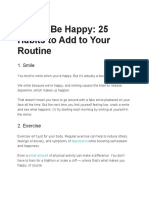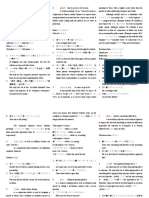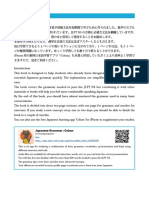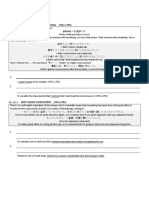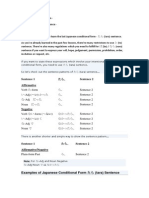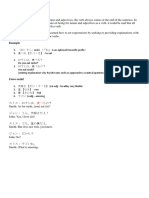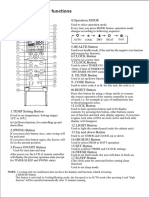0% found this document useful (0 votes)
634 views4 pagesJapanese Sentence Connector Cheat Sheet
This document provides a cheat sheet for common Japanese sentence connectors. It discusses the meanings and uses of connectors like と, そして, て・で, また・あと, それから, しかし, けれど・けど, でも, から, ので・んで, なら・ならば・んだったら, たら・だったら, ば. It explains how each connector is used to link verbs, adjectives, nouns or describe sequential actions. The document also distinguishes between connectors with similar meanings.
Uploaded by
LimSiEianCopyright
© © All Rights Reserved
We take content rights seriously. If you suspect this is your content, claim it here.
Available Formats
Download as PDF, TXT or read online on Scribd
0% found this document useful (0 votes)
634 views4 pagesJapanese Sentence Connector Cheat Sheet
This document provides a cheat sheet for common Japanese sentence connectors. It discusses the meanings and uses of connectors like と, そして, て・で, また・あと, それから, しかし, けれど・けど, でも, から, ので・んで, なら・ならば・んだったら, たら・だったら, ば. It explains how each connector is used to link verbs, adjectives, nouns or describe sequential actions. The document also distinguishes between connectors with similar meanings.
Uploaded by
LimSiEianCopyright
© © All Rights Reserved
We take content rights seriously. If you suspect this is your content, claim it here.
Available Formats
Download as PDF, TXT or read online on Scribd
/ 4






















